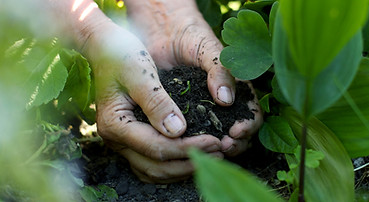About the course
Transform data into sustainable agricultural strategies.
The soil microbiome is one of the most powerful resources in modern agriculture. This theoretical-practical course is designed to empower producers, technicians, and students with up-to-date and applicable knowledge about soil microbiology and its role in agricultural productivity.
During one intensive week, the program provides the tools to interpret microbiological analyses* accurately, identify key indicators of soil health and apply this knowledge in the field through real-life case studies.
*Microbiome analysis through NGS amplicon sequencing by using the BeCropTM Test.

What You’ll Gain

On completion of the course, you will be able to:
-
Evaluate and interpret soil microbiome reports
-
Identify factors affecting soil health and productivity
-
Apply sustainable strategies for soil improvement
-
Make technical decisions based on scientific evidence
-
Actively contribute to regenerative and resilient agriculture
What You’ll Learn
General Concepts of Soil Microbiology
Soil Quality Indicators
Fundamentals of Soil Microbiome Analysis
Nutrient Cycle and Soil Fertility
Plant Health
and
Biological Control
Practical Application of Results
Structure & Modules
🧬 1. Fundamentals of Soil Microbial Analysis
-
Analysis technologies: DNA sequencing, enzymatic, microscopy
-
Sample collection and interpretation
-
Reading reports: ratios (fungi/bacteria, C:N), link to soil use (BeCropTM Test)
-
Practical application of data for agricultural decisions
🧫 2. General Concepts of Microbiology
-
Introduction to microbiology and its connection to food production
-
Metabolic processes: fermentation, respiration, and cell types
-
Soil biodiversity and distinction between microorganisms and functions
-
The essential role of the microbiome in sustainable agriculture
🧪 3. Soil Quality Indicators
-
Interpretation of physical and chemical characteristics
-
Indices of biodiversity, functionality, and microbial resilience
-
Real-life example: nitrogen fixation with molybdenum
-
Regenerative vs. conventional practices and their impact on microbial health
🌱 4. Nutrient Cycles and Soil Fertility
-
Microbial cycles of N, P, and K
-
Impact of the carbon cycle on soil fertility
-
Micronutrients and their dependence on pH
-
Nitrogen-fixing microorganisms and fertilizer cost reduction
🌿 5. Plant Health and Biological Control
-
Disease-suppressive and disease-conductive soils
-
Reading and interpreting risk indicators in reports
-
Biocontrol agents and phytohormone production
-
Adaptation to stress and promotion of natural resistance
🧑🔬 6. Practical Part and Group Work
-
Report resolution with a mentor
-
Analysis of real cases
-
Teamwork with specialized technical mentoring
🎤 7. Closing and Final Presentations
-
Final pitch by the groups
-
Presentation of the cases analyzed
-
Virtual visit to the ArrudaLab Laboratory
Speakers & Mentors
Contacts










